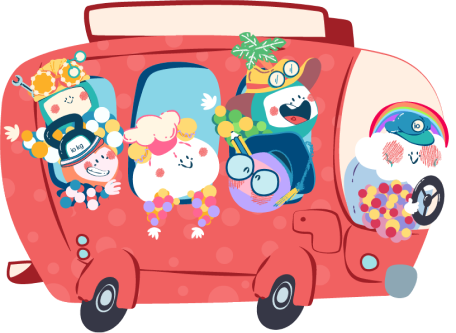Octopus are one of the most common characters in children’s books and fables. But oftentimes, they are considered as villains or monsters in these stories. Do you still remember Little Mermaid’s Ursula who took Ariel’s voice in a deal? Or perhaps the frightening Kraken of Scandinavia who can destroy entire ships?
Despite all these portrayals, octopus are actually amazing animals who spend most of their life just swimming in the seas and strolling across ocean floors. Just be careful not to disrupt their simple routines to not get stung by their tentacles!
There are infinite facts to discover about these eight-limbed creatures. Here’s a few to get you started!
Not-So-Ordinary Facts About the Outstanding Octopus
They can be a little frightening up close and you might not want to see them while you’re swimming in the ocean. But once you read these eight facts, you would want to know more about this mysterious sea creature!
Ready to dive into the octopus world? Let’s go!
- An Octopus Has Both Arms and Legs
Most people think that octopuses have eight arms, while others might think that they have eight legs. The truth is that they have both! Six of their limbs function as their arms, while two more serve as their legs that help them stroll along the seabed and swim.
These limbs have approximately 200 suckers that look like tiny hollow circles. These muscles help them capture and tear their prey, and hold themselves firmly on the ocean floor.
Other than these arms and legs, octopuses are also characterized by their elongated bodies and bulging eyes.
You might want to read about a tale of an octopus with just seven legs with The Lucky Octopus!
- Octopuses Are Very Flexible
Octopus have a beak they use when they need to break into the shells of their prey, but they do not have any skeletons and bones in their bodies. Because of this, octopuses can be very flexible. They can make themselves fit in even the smallest of spaces, especially when they need to hide from predators and enemies! Even a large octopus can make itself fit in a beer bottle.
What they lack in bones, they make up with their three hearts. You read it right, not just one, or two, but three hearts! Two of these are used to pump blood to their gills since they also do not have lungs, while the third pumps blood to other parts of their arms and body.
- Octopuses Have Nine Brains
Eight arms, three hearts, nine brains – there may be nothing singular about an octopus!
While they have just one central brain, they still have eight mini versions of this to control their limbs. These brains are more complex than other sea creatures. They can store memories for a longer time, and solve some real-life problems like opening a jar!
Courtesy of Pexels
- Octopuses Can Crawl on the Ocean Floor
When searching for food, an octopus crawls on the ocean floor through tucking their arms on the ocean bed and searching for openings they can hold on to. Only a few of them live near the water surface. In general, these species are called pelagic.
They usually stay between rocks that they build just for themselves. Using their arms and legs, they can move rocks to create the den that they desire. The blue copper that makes their blood blue also helps them live in this low-oxygen level of the deep sea!
- Multiple Defense Mechanisms Are Available for Octopuses
You might have already heard about the octopus ink, a black fluid they excrete to darken the water and allow them to escape their predators. But did you know that aside from blurring their vision, this ink can actually harm an octopus’ enemy physically? When this ink gets into their eyes, they will feel a blinding irritation.
Octopuses’ hiding specialties do not end with their ink – they are also capable of camouflage! Special color cells in their skin give them the capability to physically blend with their surroundings. When they are in camouflage mode, these color cells can turn red, black, brown, or even yellow to adapt to the colors surrounding them.
Lastly, octopuses can cut their own tentacles! If one of their limbs is stuck with a predator, they can shed this to be able to escape. A lost tentacle can be generated by octopuses the same way that the lizard does!
Watch how Octopuses use their defensive and offensive skills as they catch their prey!
- Octopuses Are Carnivores
Even if they live in the deepest parts of the ocean, octopuses share the same carnivorous diet with other animals. Their common prey are other mollusks like clams, snails, and fish.
It can be easy for them to catch their food thanks to their impressive eyesight and sense of touch. They can also swim backwards and have short speed bursts of up t0 40 km/h when chasing their prey!
- A Female Octopus Can Die After Hatching Her Eggs
Courtesy of Octonation
A mother octopus can give her life to her offspring, but not because of giving birth to them! She lays almost 200,000 eggs, and ensures that they are properly protected and taken care of.
Sometimes, looking after her eggs takes all her time and energy that she forgets to hunt food for herself – causing her to die of starvation. A mother’s noble sacrifice, you might say.
- The Largest Octopus Weighs 33 Pounds
The Pacific Octopus, known as the largest among these species, has an average weight of 33 pounds or almost 15 kgs. You would not want to be locked in this octopus’ tentacles – it will be extremely hard to get out!
On the other end of the spectrum is the Pygmy Octopus with an average length of just an inch! They are the smallest among all octopus species.
Other notable octopus species are the Mimic Octopus, which from its name has the ability to imitate other animals like sea snakes and crabs, and the Greater Blue-ringed Octopus which excretes a strong venom that can be fatal when it reaches humans.
Frequently Asked Questions on Octopus
How intelligent are octopus?
Because their brains are larger than most sea creatures, octopuses are considered as highly intelligent animals. They have long term memories and can even solve problems, including opening jar lids!
Do octopuses have feelings?
It’s hard to tell what emotions octopus feel, but researches have shown that they can feel and remember pain. Octopuses also have the brain power to avoid situations that can make them feel pain. Like most animals, they can also express aggression when they feel threatened.
What do octopuses hate?
Generally, octopuses do not like bright lights. They are also not very social beings. When they get annoyed by something – or someone – they squirt water all over them!







